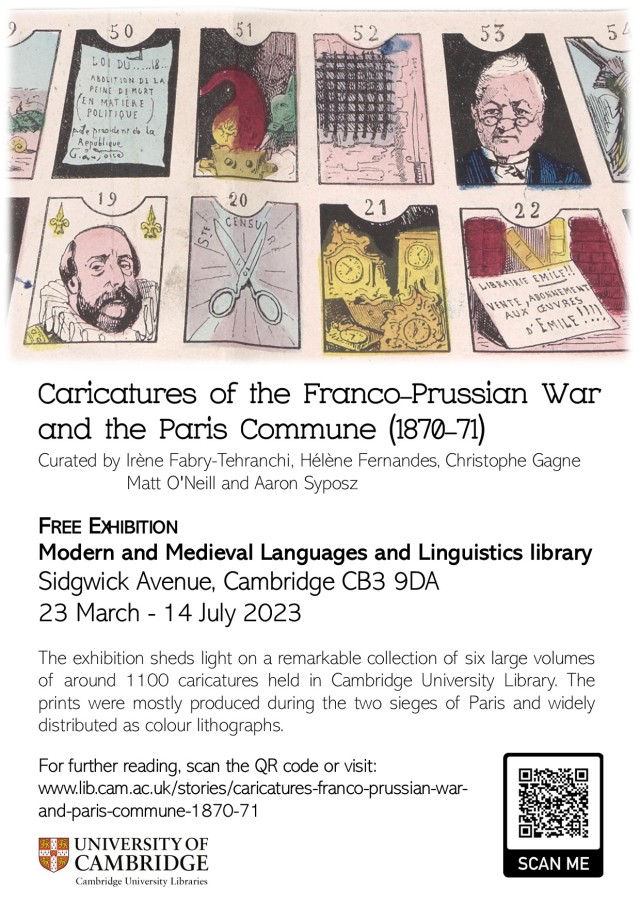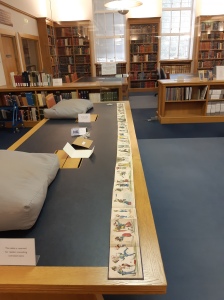A new exhibition of a selection of facsimiles of Cambridge University Library’s collection of 1870-71 caricatures is opening on 12 February at the Seeley Library (History faculty). This accompanies an ongoing translation project. This year, Geordie Cheetham worked on the translation and commentary of the song “La Complainte de Badinguet” (Badinguet’s Lament, CUL, KF.3.9, p. 162), published in Paris c. 1870 and attributed to the caricaturist, painter and song-writer André Gill (1840-1885).
This satirical piece imagines the (by that point former) French Emperor Napoleon III writing a lament following his defeat and capture in the Franco-Prussian war (1870-71). He was nicknamed ‘Badinguet’ after the name of a worker who helped him escape from prison following an attempted coup in 1846. The image shows the demoted emperor playing a barrel organ inscribed “Sedan” and his son Louis-Napoléon Bonaparte picking his nose and making a collection, accompanied by a skeletal eagle. Continue reading “La Complainte de Badinguet by André Gill (1870): translation and exhibition”

















![By Institut für Zeitgeschichte [CC BY-SA 3.0 (http://creativecommons.org/licenses/by-sa/3.0)], via Wikimedia Commons](https://europeancollections.files.wordpress.com/2016/05/editionsbaende_stehend.jpg?w=263)